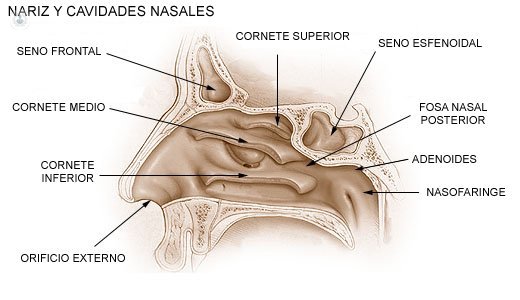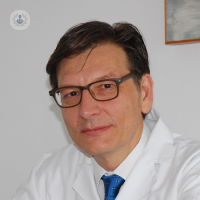What is endoscopic surgery of the nose?
Written by:
What is endoscopic sinus surgery?
 Say the experts otolaryngologists that endoscopic sinus surgery (FESS) is to operate the nostrils, sinuses and sometimes nearby areas, such as the anterior skull base, pituitary, orbit, or the tear ducts; the intervention is done through the nostrils with the help of special rigid optics (endoscopes) and surgical instruments specifically designed.
Say the experts otolaryngologists that endoscopic sinus surgery (FESS) is to operate the nostrils, sinuses and sometimes nearby areas, such as the anterior skull base, pituitary, orbit, or the tear ducts; the intervention is done through the nostrils with the help of special rigid optics (endoscopes) and surgical instruments specifically designed.
These lenses are normally connected to a camera that provides excellent image of the region to intervene with appropriate lighting and magnification.
Application of endoscopy of the nose
The nasosinual endoscopic surgery is performed in chronic rhinosinusitis with and without polyps, chronic rhinitis with turbinate hypertrophy, complications of sinusitis, septum deviation and chronic dacryocystitis ("governing" with tearing and gummy).
In addition it is also used less frequently clotting uncontrolled nosebleed in surgery pituitary tumors and skull base, in some cerebrospinal fluid, biopsies and resection of benign and malignant tumors of nose, breasts, etc.
Technical endoscopy of the nose
The technique of endoscopic sinus varies according to the pathology to be treated. In the most frequent case of chronic sinusitis, surgery to remove polyps and mucosal damage and large natural openings of the sinuses to ensure flushing and ventilation, avoiding all inflammatory tissue blocking.
Each case is different, but this operation is usually performed under general anesthesia, the usual income ranging from a few hours to one day of hospitalization. For normal, does not involve any external incision or scar. Moreover, it is common to place a coagulant substance or a small nasal packing.
Result of endoscopic sinus surgery
The result of endoscopic sinus surgery (FESS) varies according to the pathology. In infectious sinusitis, septal deviations, defects of the skull base tumors and dacriocistits, for example, seeks to be definitive surgery and usually get it.
Furthermore, in the case of severe chronic rhinosinusitis with polyps it is possible polyps appear important and need to repeat the procedure a few years later. This case is more common in patients with nasal polyps combined asthma and / or allergy to aspirin, since the intrinsic airway disease remains though important, usually with improvement, and the need for medical treatment persists maintenance.

